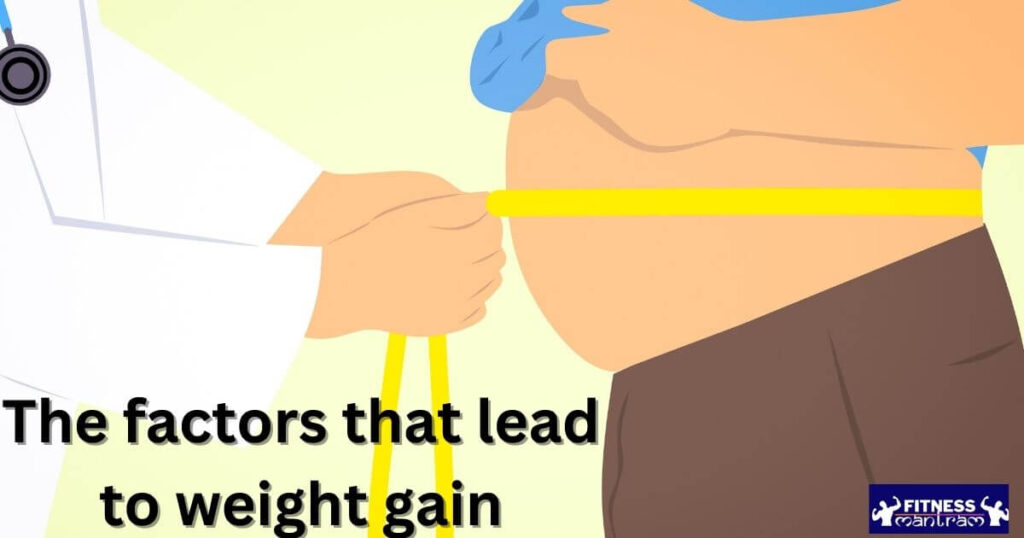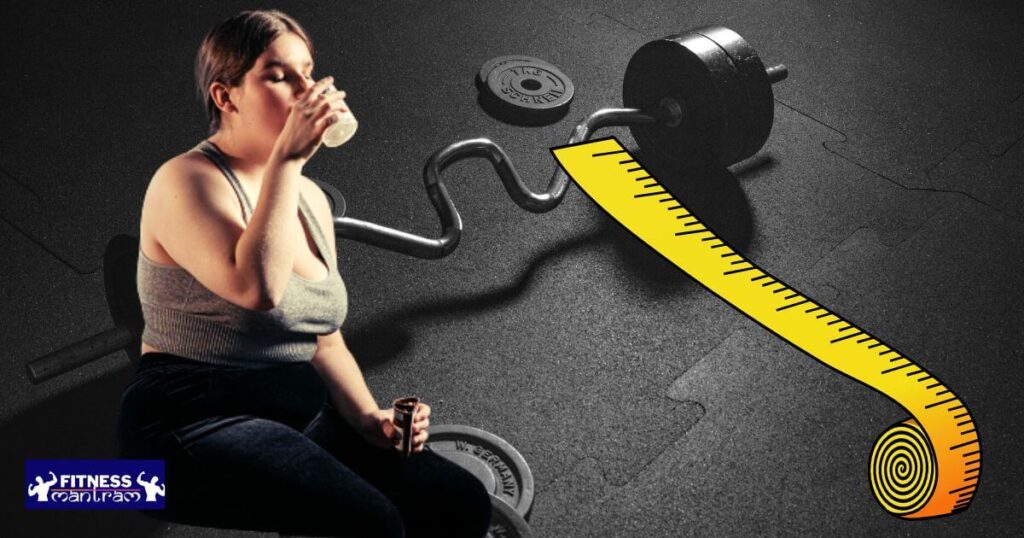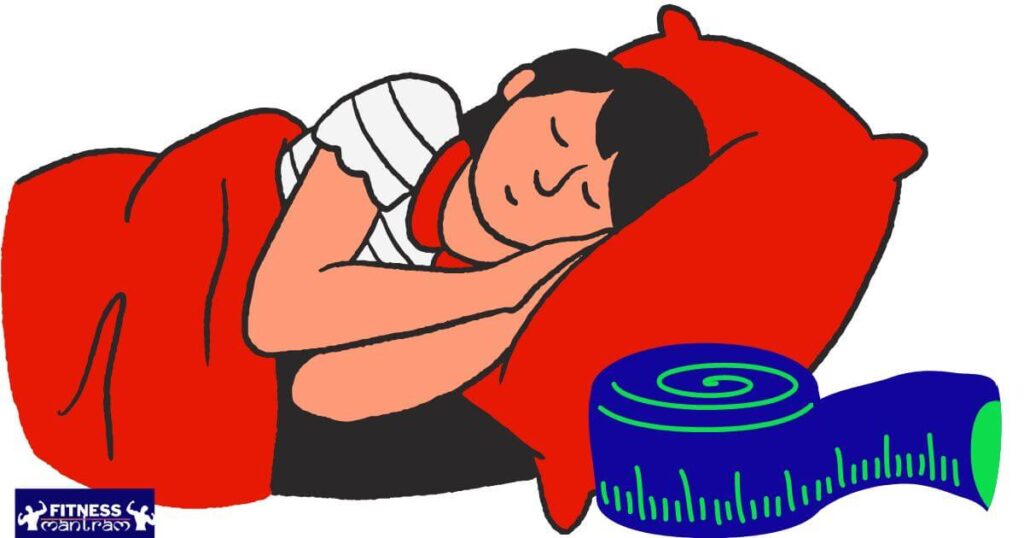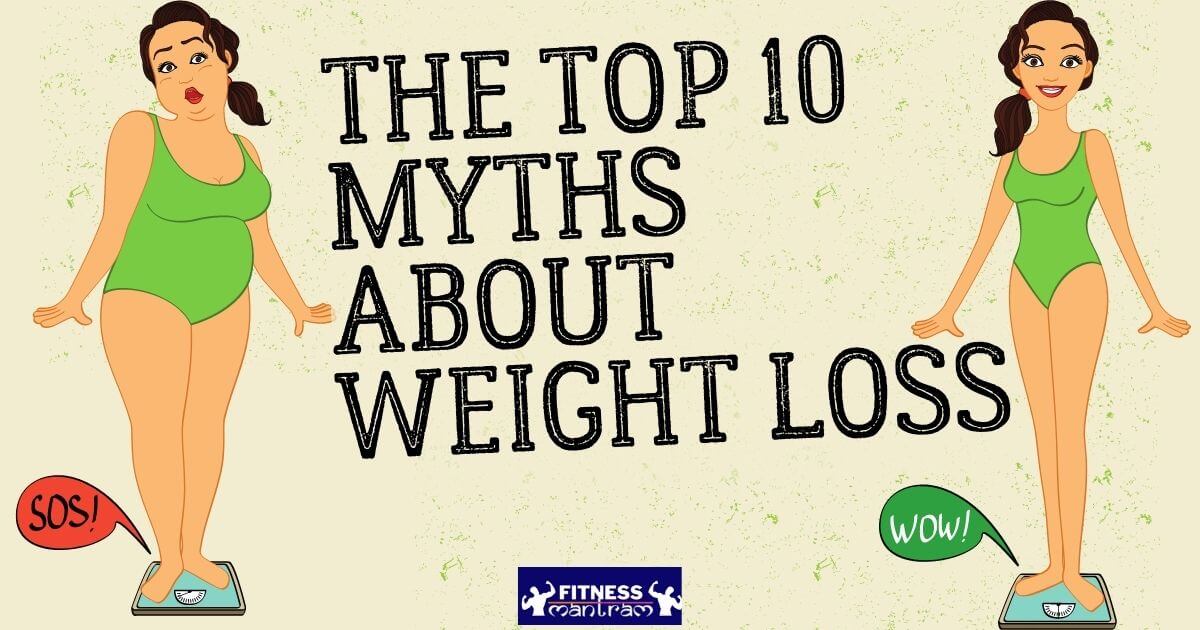Introduction: As we all know, when it comes to determining the methods and causes of weight loss, we learn either from the experiences of our peers or from internet advice. In this article, we will discuss some of The Top 10 Myths About Weight Loss and facts associated with it. However, as you go deeper into the idea of losing weight, you will come across a variety of opposing viewpoints regarding the methods used. Every individual has a unique experience and suggestion associated with it. The most important thing is the person who actually wants to lose weight and how much effort he has put into it. The truth is that the amounts of food we eat on a daily basis and how quickly our bodies burn fat determine how successful each method of weight loss is. So, let’s jump into The Top 10 Myths About Weight Loss that people believe it to work and what doesn’t.
But before we start to gain more information related to the top 10 myths about weight loss, it is very important and essential that we should know the factors that lead to weight gain.
The factors that lead to weight gain.

There are several factors that can contribute to weight gain. Some of the most common include:
Diet: Consuming more calories than you burn can lead to weight gain. This can happen if you eat high-calorie, high-fat foods or if you don’t pay attention to portion sizes.
Lack of physical activity: If you are not physically active, you may be at risk for weight gain. Physical activity helps to burn calories, so if you are not active, you are more likely to gain weight.
Genetics: Your genetics can play a role in your weight. Some people may have a slower metabolism, which means they burn calories more slowly, which can lead to weight gain.
Medical conditions: Certain medical conditions, such as hypothyroidism and Cushing’s syndrome, can cause weight gain.
Health Supportive Medications: Some health supportive medications, like steroids and antidepressants may cause some individuals weight gain as a side effect.
Stress: Chronic stress can lead to weight gain, as it can cause you to turn to unhealthy behaviours like overeating.
Poor sleep: Not getting enough sleep or getting poor quality sleep can lead to weight gain. This is because lack of sleep can disrupt the balance of hormones that regulate appetite, leading to increased hunger and cravings.
The Top 10 Myths about Weight Loss
1. MYTH: Skipping Meals Helps You To Reduce Weight:
Skipping meals can lead to weight loss in the short term, but it is generally not a healthy or sustainable way to lose weight. When you skip meals, you may be tempted to overeat or make unhealthy food choices later in the day. It is important to have a balanced diet that includes regular meals and snacks in order to provide your body with the nutrients it needs to function properly.
Eating regular, balanced meals can also help regulate your metabolism and keep your energy levels stable throughout the day. Instead of skipping meals, try to choose healthy, nutrient-dense foods and portion sizes that support your weight loss goals. Additionally, being physically active and getting enough sleep can also help with weight loss and overall health.
2.MYTH: Eating Carbohydrates Makes You Fat:
This is a myth. Carbohydrates are a macronutrient that the body uses for energy. While it is true that consuming too many calories from any source can lead to weight gain, carbohydrates alone do not cause weight gain. In fact, carbohydrates are an important part of a healthy diet and can be a good source of energy for the body. The key to maintaining a healthy weight is to balance calorie intake with physical activity and to choose nutritious foods, including carbohydrates, in appropriate portions.
126 Forgotten Survival Foods : Click here to add them to your own pantry
3.MYTH: Drinking Diet Soda Will Help You Lose Weight:
There is no scientific evidence to support the claim that drinking diet soda can help you lose weight. In fact, some studies have suggested that the artificial sweeteners used in diet soda may actually contribute to weight gain.
One study found that people who drank diet soda had higher levels of waist circumference and were more likely to be overweight or obese compared to those who did not drink diet soda. Another study found that people who drank diet soda were more likely to gain weight over time compared to those who did not drink it.
It is important to note that these studies do not prove that diet soda causes weight gain. However, they do suggest that there may be a link between the two. If you are trying to lose weight, it may be more beneficial to choose water or other non-caloric beverages instead of diet soda.
4.MYTH: Eating Fatty Food Makes You Fat:
It is not accurate to say that eating fatty food will automatically make you fat. While fatty foods can be high in calories, it is possible to incorporate them into a healthy diet in moderation. The key to maintaining a healthy weight is to balance the number of calories you consume with the number of calories you burn through physical activity. It is also important to pay attention to the types of fats you are consuming, as some fats are more healthful than others. Saturated fats and trans fats, for example, have been linked to an increased risk of heart disease and should be consumed in limited amounts, while monounsaturated and polyunsaturated fats can be part of a healthy diet.
5.MYTH: Supplements Can Help You Lose Weight:

This is not necessarily a myth. Some supplements may help support weight loss when combined with a healthy diet and exercise program. However, it is important to note that supplements are not a replacement for a healthy lifestyle and are not a quick fix for weight loss. It is also important to remember that supplements are not regulated by the Food and Drug Administration (FDA) in the same way that medications are, so it is important to be cautious when taking them and to speak with a healthcare provider before starting any supplement regimen.
Click Here For The Best Weight Loss Supplement Review
6.MYTH: Eating At Night Leads To Gaining Weight:
There is no one-size-fits-all answer to this question. It is not the time of day that you eat that determines whether or not you gain weight, but rather the total number of calories you consume and the amount of energy you expend. If you eat more calories than your body needs, you will gain weight, regardless of whether those calories are consumed at night or during the day. If you are concerned about your weight, it is important to pay attention to your overall diet and activity level, rather than the time of day when you eat.
7.MYTH: Drinking Milk Leads To Losing Weight:

There is no scientific evidence to support the claim that drinking milk leads to weight loss. In fact, milk contains calories and can contribute to weight gain if consumed in excess. However, milk is a nutritious beverage that can be part of a healthy diet when consumed in moderation. It is a good source of protein, calcium, and other essential nutrients. If you are trying to lose weight, it is important to focus on a balanced diet that includes a variety of nutritious foods and regular physical activity. It is also important to pay attention to portion sizes and to not exceed your energy needs.
8.MYTH: Drinking Water Leads To Losing Weight:

There is some truth to the idea that drinking water can help with weight loss. Water can help to fill you up and reduce your appetite, particularly if you drink a glass before meals. In addition, increasing your water intake may help to increase the number of calories you burn, as your body uses energy to heat the water to body temperature. However, it is important to note that simply drinking water is not a guarantee of weight loss, and it is important to maintain a healthy diet and get daily regular exercise routine will help you in order to achieve your fitness goal by maintaining a healthy weight.
9.MYTH: Being Vegetarian Helps You To Lose Weight:
It is not necessarily true that being vegetarian will help you lose weight. While some vegetarian diets may be lower in calories and fat, it is still possible to eat a high calorie vegetarian diet. The key to weight loss is to create a calorie deficit by consuming fewer calories than you burn through physical activity and daily living. To do this, it is important to focus on nutrient-dense, whole foods and to pay attention to portion sizes. It is also important to engage in regular physical activity. A vegetarian diet can be healthy and may offer some weight loss benefits, but it is not a guarantee. It is important to find an eating pattern that works for you and meets your nutritional needs.
Click Here To Download: 7 Day Keto Diet Plan For Weight Loss
10.MYTH: Could Sleeping Lead To Losing Weight:

There is no direct relationship between sleep and weight loss. However, getting enough sleep can contribute to weight loss indirectly in several ways. For example, if you are well rested, you may be more physically active during the day, which can help you burn calories and lose weight. In addition, sleep deprivation has been linked to an increased appetite, particularly for high-calorie, sugary foods. This can make it harder to stick to a healthy diet and may lead to weight gain. So, while sleep alone is not a guarantee of weight loss, it can be an important factor in maintaining a healthy weight.
CONLUSION: Myths About Losing Weight:
As discuss above there are many myths about weight loss that can make it difficult for people to achieve their health and fitness goals. Hence what we can understand from the above the most common myths are as given below.
- You cannot target specific areas of your body for weight loss. Losing weight requires a combination of diet and exercise that leads to overall fat loss, rather than just fat loss in specific areas.
- Skipping meals doesn’t help you lose weight. Skipping meals may seem like an effective way to cut calories, but it can actually make weight loss more difficult. When you skip meals, your body goes into “starvation mode” and begins to store fat rather than burning it.
- Carbs are an important source of energy for the body, and they should not be avoided entirely. Complex carbs, such as those found in whole grains, fruits, and vegetables, can be an important part of a healthy diet.
- Fad diets that promise quick weight loss are often not sustainable, and they may not provide the nutrients your body needs to function properly. It’s important to choose a healthy, balanced diet that you can stick to over the long term.
- While exercise is important for weight loss, it is possible to lose weight with just a moderate amount of physical activity. It’s important to find an exercise routine that is manageable and sustainable for you.
FREQUENTLY ASKED QUESTION
There are many myths about losing weight that can mislead people and prevent them from achieving their weight loss goals. Here are a few common myths about weight loss:
Q. Do Fad diets and quick fixes are the best effective ways to lose weight?
A: While fad diets and quick fixes may produce short-term weight loss, they are not sustainable and can even be harmful to your health. A healthy weight loss plan should focus on making long-term changes to your diet and physical activity habits.
Q. Do you have to completely eliminate certain foods or food groups to lose weight?
A: It’s not necessary to eliminate entire food groups or specific foods to lose weight. In fact, restrictive diets can be difficult to stick to and may lead to nutrient deficiencies. Instead, focus on making balanced, healthy choices most of the time and allowing yourself the occasional treat.
Q: Do you have to exercise for hours every day to lose weight?
A: While regular physical activity is an important part of a healthy lifestyle and weight loss plan, you don’t have to exercise for hours every day to see results. In fact, even moderate amounts of physical activity, such as 30 minutes of brisk walking per day, can help you lose weight and improve your health.
Q: Does eating after 8 p.m. will cause you to gain weight?
A: The time of day that you eat has no effect on weight gain or loss. What matters is the total number of calories you consume and the balance between calories in and calories out. As long as you are eating a healthy diet and maintaining an energy balance, it doesn’t matter when you eat.
Q: Do you have to target specific areas of your body for weight loss?
A: It’s not possible to spot reduce or choose where you lose weight from. When you lose weight, it tends to come from all over your body, not just a specific area. However, regular physical activity can help you tone and strengthen specific muscle groups.
Read More:
- The Myths About Vitamins and Supplements.
- The Growing Epidemic of Obesity
- The Most Essential Nutrient For Survival
- What is bf.7 Variant? Everything you need to know
- 10 Basic Tips to get Body in Shape
Disclaimer : The details & information given here in this article is based on information as available on other published site on internet. Do take medical advice before adopting it. Fitness Mantram Does Not Confirm It. This site contains affiliate links. If you choose to make a purchase after clicking a link the author/owner/creator may receive a commission at no ADDITIONAL cost to you. Thank you for your support!

5 thoughts on “The Top 10 Myths About Weight Loss: Separating Fact From Fiction”